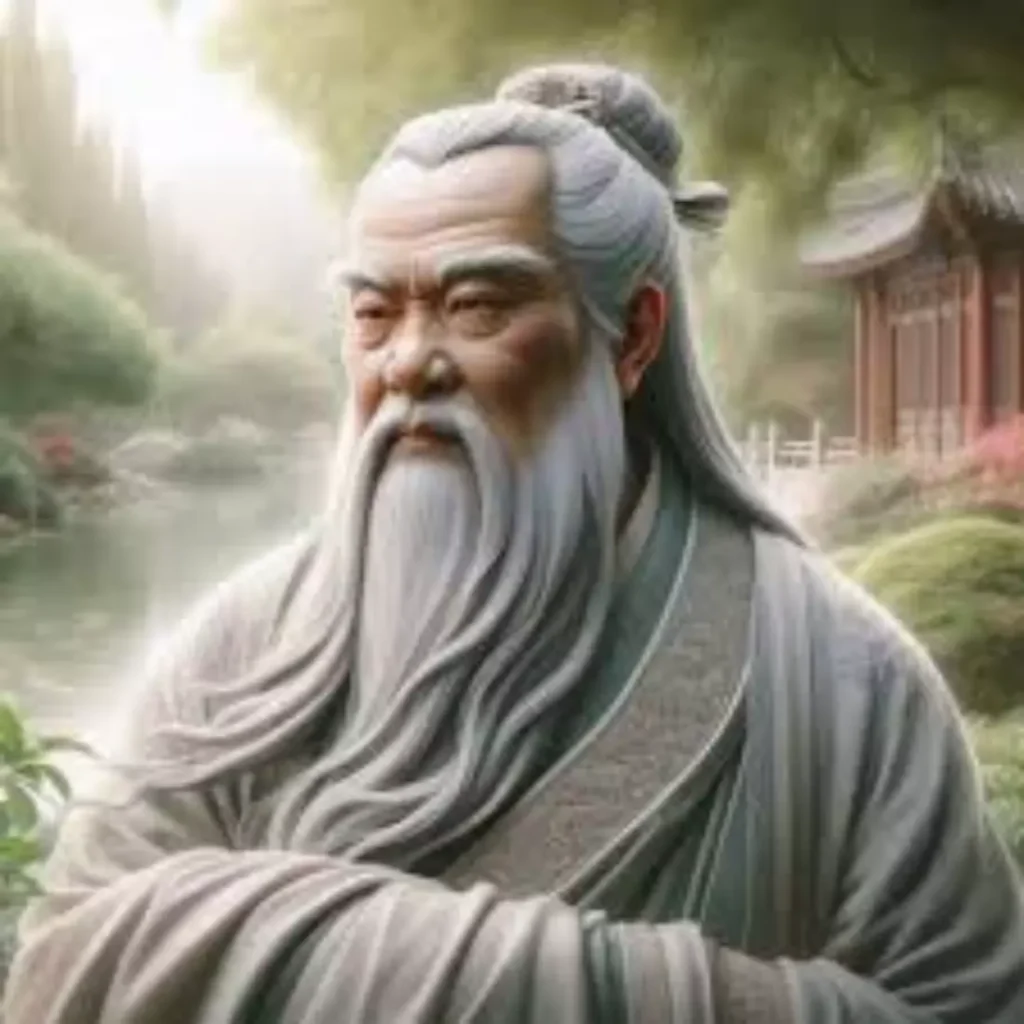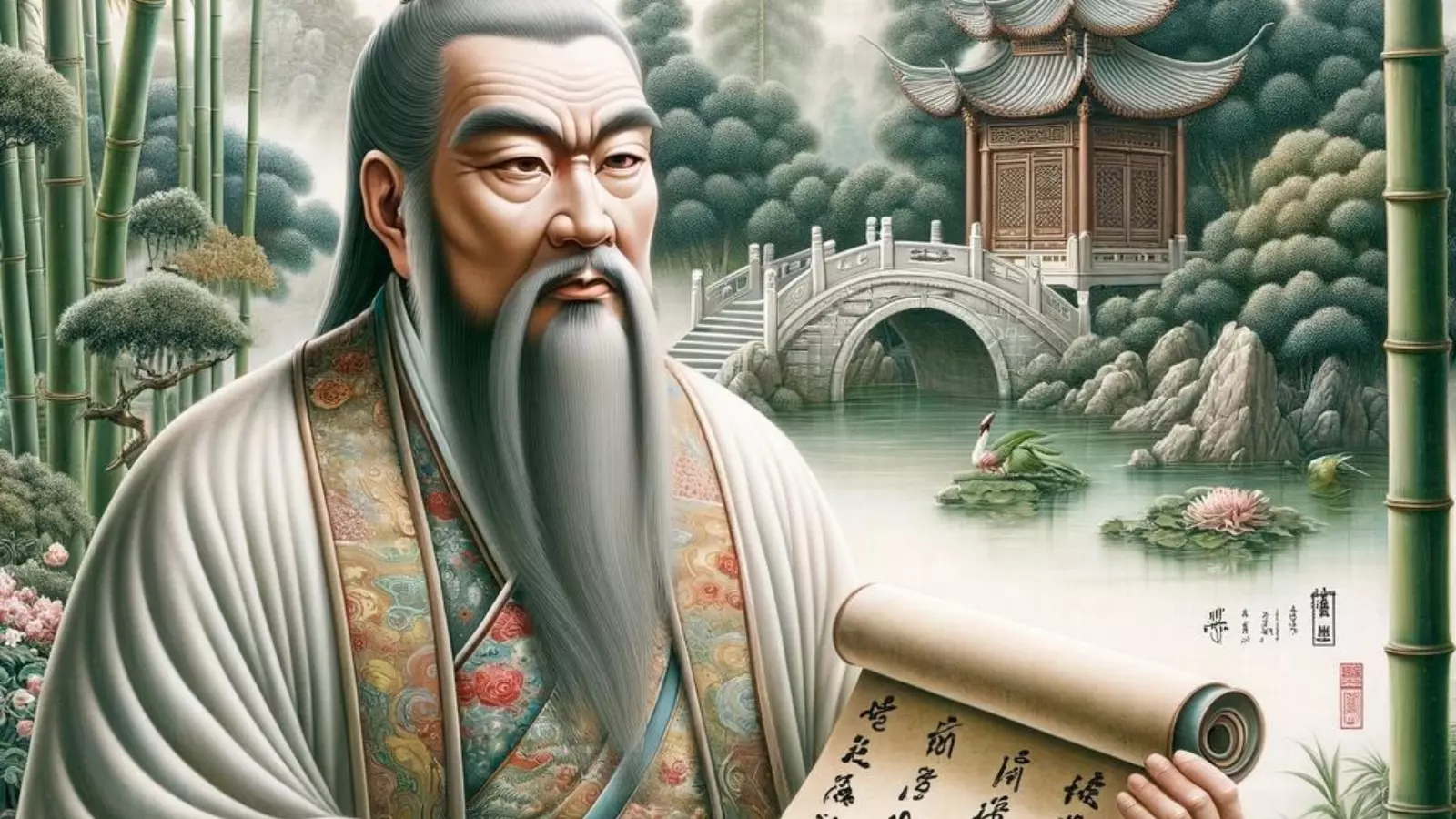Short About
Confucius was a Chinese philosopher whose teachings on ethics, governance, and social relationships have profoundly shaped East Asian culture for over two millennia.
Did you know?
Confucius did not actually write “The Analects,” his most famous work. It was compiled by his disciples after his death.
Net Worth
As a historical figure, Confucius did not have a net worth in modern terms. However, his philosophical legacy is invaluable.
Table of Key Information
| Aspect | Details |
| Profession | Philosopher, Teacher, Political Advisor |
| Age | Lived to 71-72 years |
| Birthday | September 28, 551 BCE |
| Height | Unknown |
| Birthplace | Qufu, State of Lu (modern Shandong Province, China) |
| Net Worth | Not applicable (historical figure) |
| School | Developed his own school of thought (Confucianism) |
Confucius’ Life and Legacy

Early Life and Career
Born into a noble family that had fallen on hard times, Confucius grew up in relative poverty. He worked various jobs in his youth, including as a shepherd and clerk. His thirst for knowledge led him to become a respected teacher by his 30s.
Political Career and Exile
Confucius briefly served as a government official in the state of Lu. However, political disagreements led to his exile for about 13 years, during which he traveled and spread his teachings.
Return and Later Years
Upon returning to Lu, Confucius focused on teaching and writing. He compiled and edited classic Chinese texts and developed his philosophical ideas further.
Confucian Philosophy and Teachings
Key Concepts
- Ren (仁): Humaneness or benevolence
- Li (禮): Proper conduct and etiquette
- Yi (義): Righteousness and justice
- Xiao (孝): Filial piety
The Five Relationships
Confucius emphasized the importance of social harmony through five key relationships:
- Ruler to subject
- Father to son
- Husband to wife
- Elder to younger
- Friend to friend
Historical Influence
Confucianism became the official state philosophy of China during the Han Dynasty (206 BCE – 220 CE) and remained influential for centuries. It spread to other East Asian countries, shaping their cultures and governance.
Modern Relevance
While Confucianism’s influence declined in the 20th century, there has been a resurgence of interest in recent years. Many see Confucian values as relevant to addressing modern social and ethical issues.
Demographics
- Primary audience: Students, scholars, and those interested in philosophy and Chinese culture
- Age range: Primarily adults, but accessible to younger readers
- Geographic focus: Global, with particular interest in East Asia
Interests and Lifestyle
- Philosophy and ethics
- Chinese history and culture
- Education and self-improvement
- Political theory and governance
Psychographics
- Value tradition and moral education
- Interested in personal and societal harmony
- Believe in the importance of social relationships and roles
Confucius Biography
Born: 551 BCE in Qufu, State of Lu (modern Shandong Province, China) Died: 479 BCE (aged 71-72)
Confucius came from a noble family but grew up in modest circumstances. He worked various jobs before becoming a teacher and later a government official. His philosophical ideas, emphasizing personal and governmental morality, correctness of social relationships, justice, and sincerity, formed the basis of Confucianism.
Social Media
As a historical figure, Confucius does not have personal social media accounts. However, many pages and accounts dedicated to his teachings exist across platforms:
📘 Facebook: Multiple pages with thousands of followers 🐦 Twitter: Various accounts sharing Confucian wisdom 📸 Instagram: Accounts posting quotes and teachings
(Note: Specific follower counts are not provided as they constantly change and vary across different accounts.)

Matthew Porter is a dynamic author with a keen interest in personalities and profiles. With a flair for insightful analysis and a passion for understanding the complexities of human behavior, Matthew brings a unique perspective to his writing.










